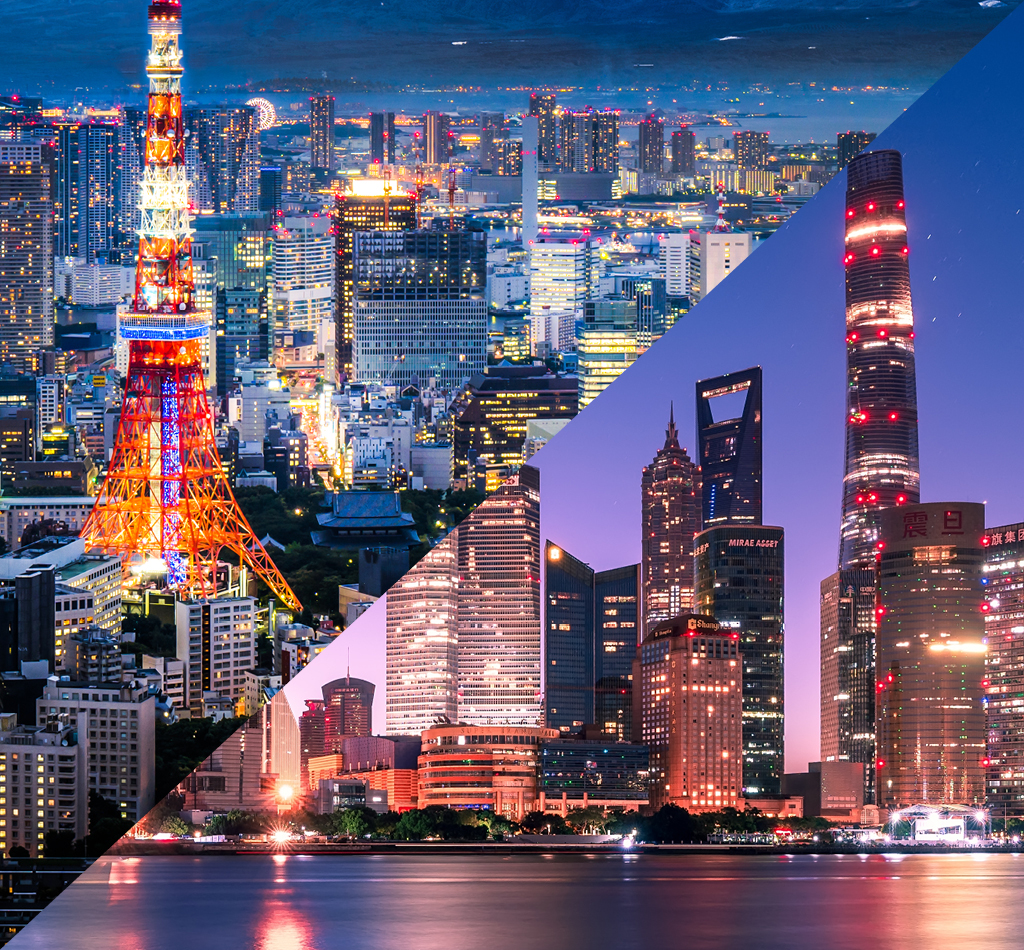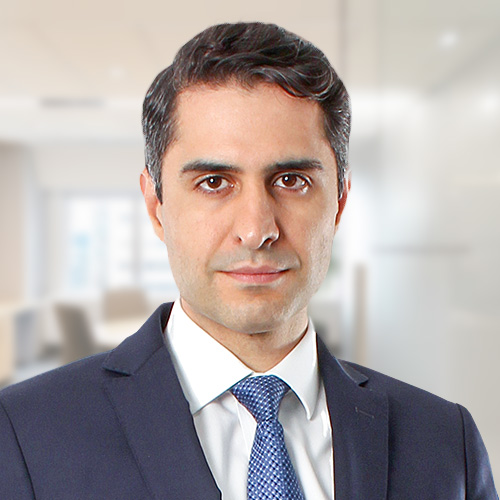Commentaires
Thoughts on Evergrande
28 septembre 2021
In this special commentary, we discuss the evolving Evergrande situation. While we do not hold Evergrande in our portfolio, we wanted to share our views because it is the most indebted real estate company in the world, and has created lots of volatility in the global financial market.
Background on Evergrande
Evergrande is the second largest property developer in China in terms of sales value. The company has 160,000 employees and close to 4 million employees related to Evergrande’s activities. It has a total debt of RMB 2 trillion (around USD $300 billion, equivalent to 1% of deposits in China, and almost 2% of China’s GDP), including interest-bearing debts of RMB 571 billion, pre-sale of RMB 216 billion, payables of RMB 963 billion, and wealth management products of RMB 100 billion. It is one of the most levered real estate companies in the world, but its debt is still minor in relation to China’s financial system as a whole. Considering the above data, we believe China’s financial system can absorb, without any mayor problem, all the losses from this company.
Potential of creating a contagion effect on the broader global financial markets?
This is not another Lehman. We think the contagion effect on the broader global financial markets is limited. The Evergrande saga remains a domestic issue. The Chinese government has enough capacity to intervene and will do so to reduce the contagion risk.
The recent news is an example: Evergrande reached an agreement with yuan bondholders on an interest payment due September 23, 2021, without clarifying the terms. The Chinese government injected RMB 120 billion into the banking system on September 22, 2021.
The major risk is a contagion to other developers, banks, suppliers, holders of Evergrande’s wealth management products, and home buyers. A possible scenario is that the government could take over the problem companies with state-owned enterprises (SOE).
As the property policy is unprecedentedly tight at this moment, the government has plenty of room to loosen if they want. It is likely that they are willing to wait in order to show that the real estate sector is not “immune” but that they can come in at any time in order to preserve financial stability. Many loans to Evergrande made by Chinese banks are implicitly backed by the government. We believe that the first priority for the government is to ensure that the pre-sold apartments are delivered to the buyers, otherwise, there will be serious social unrest.
Regulatory headwinds coming from China
The key words for China’s policy is currently “Common Prosperity,” which fundamentally entitles a policy shift towards reducing wealth inequality. The concept is not new; it has been a long-term goal of the Chinese government that has become more relevant recently.
The Central Party and State Council jointly announced the plan on June 10, 2021, establishing Zhejiang province as the pilot zone. The 14th five-year plan (2021-2025) called for an “action plan” to be fully implemented by 2050, to become an advanced, modern economy. Among common prosperity goals are narrowing the income gap, tackling the increasing real estate prices, promoting higher household income growth, increasing public services, such as healthcare and education, and improving living conditions of rural residents, among many others. These common prosperity initiatives will likely rebalance the economy from investments to consumption, targeting the midlow-income population. Moreover, the state’s role in public and private sectors is likely to become more relevant.
In the upcoming Politburo meeting this December, policymakers will set priorities for next year.
Appendix
Examples of contagion risks:
- Other developers will find financing more difficult, if investors lose confidence in them. Project sales will also become more difficult. As a matter of fact, the selling prices of properties are controlled by the governments, so developers are not able to sell their properties at discounts.
- Suppliers should be more cautious on payment terms and conditions on other developers. They would also see lower demand and production. Some may need to cut jobs or wages, causing weaker household consumption.
- Home buyers (more than a million) are also heavily protesting at Evergrande’s offices causing their construction projects to be halted. Home buyers that are working with other developers may also doubt their houses would be delivered, therefore, causing more selling pressure.
- Local governments receive transfers from the central government with bond issues via Local Government Financing Vehicle (LGFV) which are collateralized with land use rights. Raising funds for local governments could eventually become more complicated.
- More default scenarios of individual companies are also likely to occur. For example, Sinic (2103 HK) was implied to have financial problems, and the stock slumped 87% on September 20, 2021.
Chinese government successfully resolved the interbank credit crunch in 2013. Tools that the
government could use this time:
- Easing liquidity: RRR cut, liquidity injection
- Verbal support
- Controls of LGFV financing likely to become less tight
- Loosening of property policy
- Accelerating LG bonds
- Maintaining low rates
- Persuading banks to lend
The systemic risk is not high.
- Although Evergrande has a larger balance sheet (RMB 2.4 trillion) than Huarong (RMB 1.6 trillion) and Anbang (RMB 1.5 trillion), its asset contains largely land lots which are much more “tangible than the other financial companies.”
- Since the government controls the financial system, many SOEs could be strategic investors of Evergrande and also adjust the property policies.
- When the People’s Bank of China (PBoC) initiated its support to the property sector (printing money) in-mid 2014, it granted a long term loan to China development bank. PBoC said at that time, “A change emerged in the base money supply channel.”
- The government could buy their own land, as they did in 2014-2015.
- In the case of Evergrande, the government can let them fall, avoiding a contagion or make an orderly debt restructuring. In similar cases they have taken actions. In the case of Anbang, several SOEs took up the company and formed a new insurance company. In the case of Huarong, Citic Group (a SOE) and other “strategic” investors capitalized the company.
Thoughts on the stock market
It is worth noting that the Chinese government seems to have downplayed the importance of paying too much attention to short-term growth. They indeed have a short-term buffer, considering the 2021 GDP target is “above 6%,” and the country is likely to grow in the range of 8% this year. The current outlook is more focused on solving structural problems, which may have short-term collateral consequences, but the vision is to improve the long-term perspective. Indeed, President Xi has emphasized on numerous occasions that the aforementioned long-term goals are not just an economic objective, but serve as the Party’s “governing foundation”. The foregoing is still interesting, since, as previously mentioned, the Western vision is often different. Billions of dollars have been lost in market capitalization of the Chinese assets sector, driven by strict regulatory policy in the afterschool tutoring, together with anti-monopoly and cybersecurity rules in the internet sector. The government has also tightened property policies. Currently, a blanket of uncertainty persists regarding « which sector will be regulated next. » For example, almost one month ago, a state media article equated the gaming industry, which has many companies that trade on the stock market, to “opium”. Although the government quickly quashed this article and there were no official statements, it caused a rapid slump of shares linked to the gaming sector, reflecting the prevailing nervousness among investors. The government recently released new regulations for the industry, including limiting the amount of time children can play video games to three hours a week, and last week state media mentioned that companies should avoid the sole focus of pursuing profit, in order to prevent minors from becoming addicted to games. This sentiment led to another round of losses in gaming-related stocks.
We believe China is trying to improve its society in the long term, but are not very concerned about the effect this may have on investors in the short term. The question then is; how can we better cope and adjust to these policies for the benefit of our clients? China accounts for around 10% of the MSCI EM Small Caps index, making it an important investment for our EM Small Cap fund. Our approach to this new environment is to understand the domestic perspective and invest in companies/sectors that are subject to less regulation and more likely to benefit from the new trends that we see emerging in the future. Each scenario presents a new opportunity and the trends include:
- Greater self-reliance on government-fostered technology (semiconductors, artificial intelligence);
- Renewable energy;
- Fitness;
- Consumption favouring local brands/companies; and
- Manufacturing industry and robotics for products designed mainly to support and strengthen the Chinese economy.





